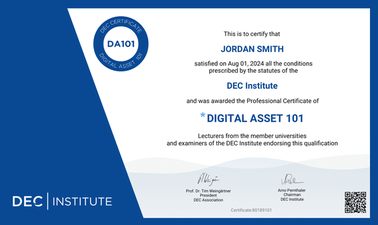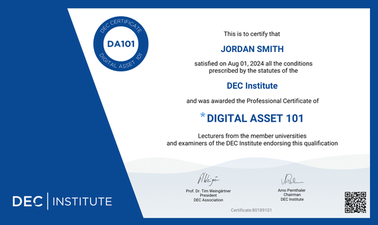
IRTIx: أدوات تحول البنوك التقليدية للعمل وفق أحكام الشريعة الإسلامية
by Islamic Development Bank Institute
Transforming Traditional Banks to Islamic Banking
Course Description
This comprehensive course, "Transforming Traditional Banks to Islamic Banking," offered by IRTIx, is designed to address the growing trend of traditional financial institutions transitioning to Islamic banking practices. The course provides a thorough understanding of the practical aspects of this transformation process, covering everything from legal requirements to staff training. It aims to equip participants with the knowledge and skills necessary to navigate the complexities of converting a conventional bank to an Islamic one, ensuring compliance with Sharia law while maintaining operational efficiency.
What students will learn from the course
- Identify the differences between traditional and Islamic banking systems
- Understand the nature of activities and transactions in Islamic banks
- Recognize the entities that can initiate the transformation process
- Master the legal and regulatory requirements for bank transformation
- Learn how to handle pre-transformation interest and revenues
- Implement Sharia-compliant alternatives for various banking products and services
- Apply appropriate accounting systems and financial standards
- Understand the organizational structure of Islamic banks
- Comprehend the control, supervision, disclosure, and transparency environment
- Develop effective employee training plans for the transformation process
Pre-requisites or skills necessary to complete the course
While there are no formal prerequisites, it is recommended that participants have:
- Basic knowledge of economics
- Practical familiarity with banking operations, both traditional and Islamic
- Understanding of conventional banking practices
- Background knowledge of Islamic banking and its differences from traditional banking
What the course will cover
- Types of transformation to Islamic banking
- Legal and regulatory requirements for the new Islamic identity
- Handling non-compliant activities and transactions
- Developing and implementing information systems for Islamic banks
- Creating and adapting accounting systems for Islamic banks
- Establishing Sharia governance systems
- Training bank employees for the new Islamic banking environment
Who this course is for
This course is ideal for:
- Banking professionals interested in Islamic finance
- Managers and executives in traditional banks considering transformation
- Regulators and policymakers in the financial sector
- Scholars and students of Islamic economics and finance
- Consultants specializing in banking transformations
How learners can use these skills in the real world
Graduates of this course will be well-equipped to:
- Lead or participate in bank transformation projects
- Advise financial institutions on Islamic banking practices
- Develop Sharia-compliant products and services
- Implement effective governance and compliance systems in Islamic banks
- Train and manage staff during the transformation process
- Navigate regulatory challenges in Islamic banking
- Contribute to the growth and development of the Islamic finance industry
Syllabus
- Unit 1: Types of Transformation to Islamic Banking
- Unit 2: Legal and Regulatory Requirements and Amendments in Light of the New Islamic Identity
- Unit 3: Handling Non-Compliant Activities and Transactions and Mechanisms for Their Elimination
- Unit 4: Preparing and Developing the Bank's Information System
- Unit 5: Preparing and Developing the Bank's Accounting System
- Unit 6: Preparing and Developing the Bank's Sharia Governance System
- Unit 7: Training Bank Employees
This course offers a unique opportunity to gain in-depth knowledge and practical skills in the rapidly growing field of Islamic banking, making it an invaluable asset for professionals looking to advance their careers in this sector.










